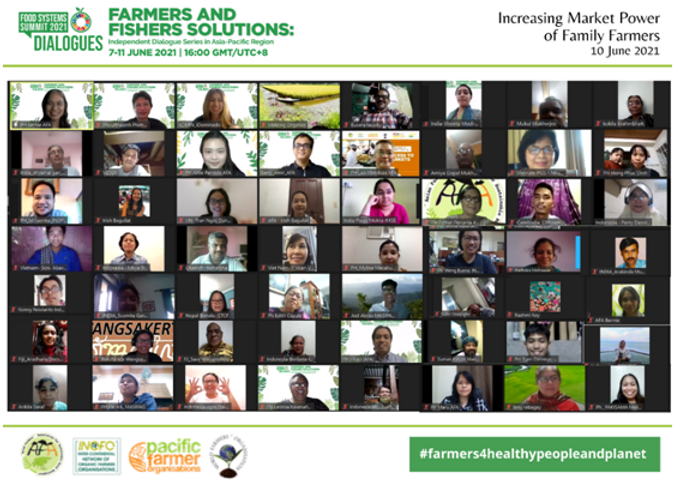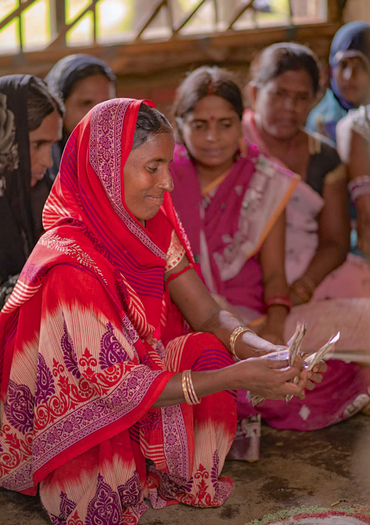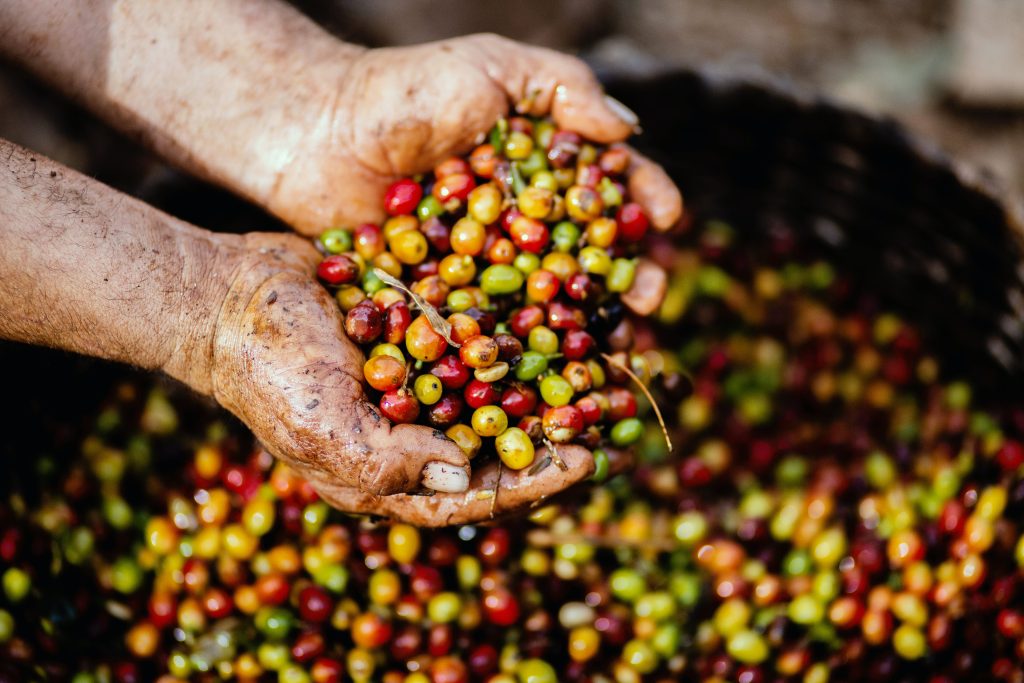On 7-11 June, AFA co-organized the Asia-Pacific Farmers’ Organizations Food Systems Summit Independent Dialogue Series with the Intercontinental Network of Organic Farmers' Organizations (INOFO), World Farmers’ Organization (WFO), and Pacific Island Farmers Organization Network (PIFON), supported by ComDev Asia. This series of events was attended by farmers, government representatives, civil society organizations, FAO, IFAD and representatives of the Summit process.
The series was organized to raise farmers’ awareness and foster discussion on food system transformation as a key tool to achieve the Sustainable Development Goals, to highlight what solutions farmers and their organizations can already offer in climate change adaptation, agro-ecology and organic agriculture, sustainable fishing and family farmers’ market power. An additional goal was generating commitment from various stakeholders to support family farmers and their organizations.

Image: AFA
Day 4, convened by AFA, focused on the theme of Participation in Agriculture Value Chain Development: Increasing Market Power of Family Farmers. The dialogue underscored the many challenges that farmers and fishers face in the region, including insecure land rights, low product prices and rising input prices, market volatility, poor access to production technology, competition for scarce land and water resources, the impact of climate change, and policy neglect of agriculture. It also presented a Market System Development Approach that aims to address these challenges by stressing the importance of cooperatives and participation of cooperatives in value chains and the need to transform farmers’ and farmers' organizations’ mindsets to engage more effectively in agro-enterprise development, complemented by a more conducive policy environment.
Participants underlined the role of cooperatives particularly in value addition, development of agri-enterprises, and facilitated access to finance and services for farmers, as well as the need to empower cooperatives to be more effective market actors. They also addressed issues related to technology in relation to rural youth empowerment, and the potential benefits of increasing their access to modern technologies for smart agriculture and for digitally-enabled access to inputs, markets and government schemes. Finally, the dialogue emphasized that it is critical to understand and address farmers’ strengths and weaknesses, including their capacity to meet market demand, and the role that agricultural cooperatives can play in that regard.
The dialogue outcomes are expected to be published on the AFA website.

